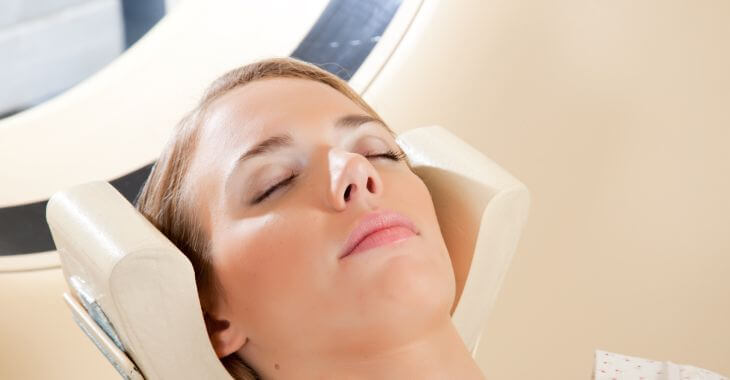Menopause, Osteoporosis and Bone Density Scans
If you are a woman in your thirties or older, you most likely have already began to lose bone density. At some point during their thirties, most women begin to start losing bone mass, making them more likely to fracture bones and eventually be prone to osteoporosis. Osteoporosis is a bone disease that makes bones more porous and susceptible to fractures. Once a woman is over 50, she is four times more likely to get osteoporosis than a man.
The scary aspect about osteoporosis is that there are no warning signs or symptoms. Although you begin to naturally lose bone density in your thirties, that doesn’t mean you need to have osteoporosis. However, menopause is often another factor that can contribute to this disease. As estrogen levels drop, bone density loss increases, making you at higher risk for osteoporosis.
The first step to protecting yourself against osteoporosis is discussing nutrition and bone health with your OB/GYN or doctor. Your ethnicity, family history, age and other factors can all impact your risk for the disease. Your doctor can discuss options for calcium and vitamin D supplementation, nutrition and even hormone replacement therapy. Another option is to undergo bone density scans.
Bone density scans are one of the few ways to accurately measure bone loss and diagnose osteoporosis. Many people are unaware they have the disease until their bones are already compromised and they suffer their first fracture. By undergoing bone density scanning when you begin to near menopause, you can help gauge your bone loss which can help you and your physician determine the best options to prevent this debilitating disease before it begins. Talk to your doctor about scheduling a bone density scan with your local radiology clinic to start proactively preventing osteoporosis.
Posted on behalf of:
Diagnostic Radiology Ultrasound & Breast Center, P.C.
Mount Vernon Medical Center
755 Mount Vernon Highway Northeast #310
Atlanta, GA 30328
(404) 252-3430
The information provided on this website, including text, graphics, images, and other materials, is intended solely for informational purposes and should not be used as a substitute for professional medical advice, diagnosis, or treatment.

)